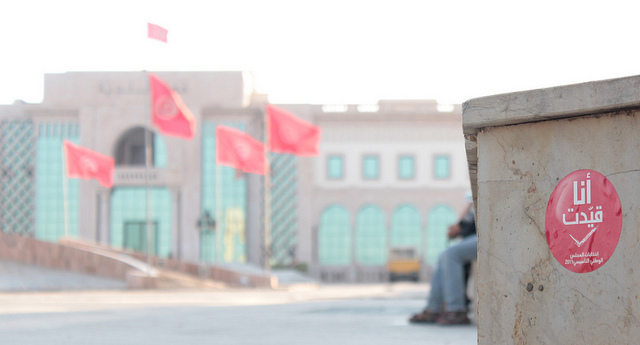by John P. Entelis, Fordham University
This memo was prepared for ‘The Arab Thermidor: The Resurgence of the Security State’ workshop held at LSE on 10 October 2014 in collaboration with POMEPS.

The resurgence of the mukhabarat state in the three years after the Arab Spring revolutions has inspired several competing explanations ranging from dysfunctional leadership to external interference to radical Islamism to recalcitrant militaries, among others. What few analysts have investigated are the cultural roots of an authoritarian impulse that continues to defy a democratic imperative; an imperative that can only be institutionalized through a systematic and sustained process of political learning begun at childhood and extended throughout adulthood.
The Arab Spring revolutions exposed the desire to overcome the authoritarian impulse but without a democratic foundation to replace it. That foundation is virtually absent at the level of the mass public and only superficially inculcated among the educated elite. This paper will argue that the absence of a democratic political culture, arrived at through a foundational commitment to political learning, virtually guarantees that authoritarianism, whether secular or sectarian, will be the default governance style in the Arab world more generally and North Africa more specifically. This suggests that neither authoritarianism nor democracy are “natural” expressions of political life but, instead, must be learned, inculcated, and practiced from early life through adulthood. In North Africa political learning is transmitted indirectly through authoritarian practices experienced at home, school, mosque, and civil society. Until such practices are overturned to be replaced by a participatory, egalitarian, and open minded political culture, democratic institutions and processes will have little chance of being legitimized.
Democracy matters for human development because people everywhere want to be free to determine their destinies, express their views and participate in the decisions that shape their lives. These capabilities are just as important for human development—for expanding people’s choices—as being able to read or enjoy good health.
Democracy has at least two distinct meanings: one normative, the other procedural. In either case, democracy must be learned if it is to have long-term significance. Democracy learning involves a complex process of political socialization utilizing different but reinforcing agents: family, school, religious institution, work place, community, and political system. Whatever agency is involved, the content of that learning must involve a basic understanding of and internalization to democracy’s essential core – the primacy of human freedom and individual choice articulated through a framework of representative government and the rule of law. This democratic core can never be assumed but must be firmly embedded within democratic institutions whose practitioners exemplify these principles both in words and deeds. Only when such a pedagogical propensity to democratic values finds institutional expression can other aspects of human, social, and economic development proceed. It is in this light, that democratic values, representative institutions, and sustainable development fuse into a seamless pattern of human progress.
>> read the full memo on the POMEPS website
Other available memos in the series
‘Elite Fragmentation and Securitization in Bahrain’, by Toby Matthiesen, University of Cambridge
‘Militaries, Civilians and the Crisis of the Arab State’, by Yezid Sayigh, Carnegie Middle East Center
‘Arab Transitions and the Old Elite’, by Ellis Goldberg, University of Washington
‘Explaining Democratic Divergence: Why Tunisia has Succeeded and Egypt has Failed’, Eva Bellin, Brandeis University
‘Is Libya a Proxy War?’, Frederic Wehrey, Carnegie Endowment for International Peace
‘Fiscal Politics of Enduring Authoritarianism’, Pete W. Moore, Case Western Reserve University
‘The Role of Militaries in the Arab Thermidor’, Robert Springborg, Sciences Po
‘Mass Politics and the Future of Authoritarian Governance in the Arab World’, Steven Heydemann, United States Institute of Peace
‘Security Dilemmas and the ‘Security State’ Question in Jordan’, Curtis R. Ryan, Appalachian State University
‘Authoritarian Populism and the Rise of the Security State in Iran’, Ali Ansari, University of St Andrews
‘A Historical Sociology Approach to Authoritarian Resilience in Post-Arab Uprising MENA’, Raymond Hinnebusch, University of St Andrews
‘The Arab Thermidor’, Marc Lynch, George Washington University





